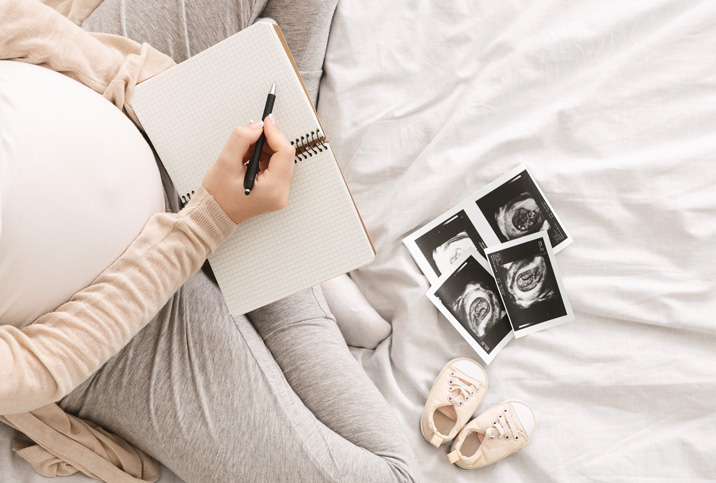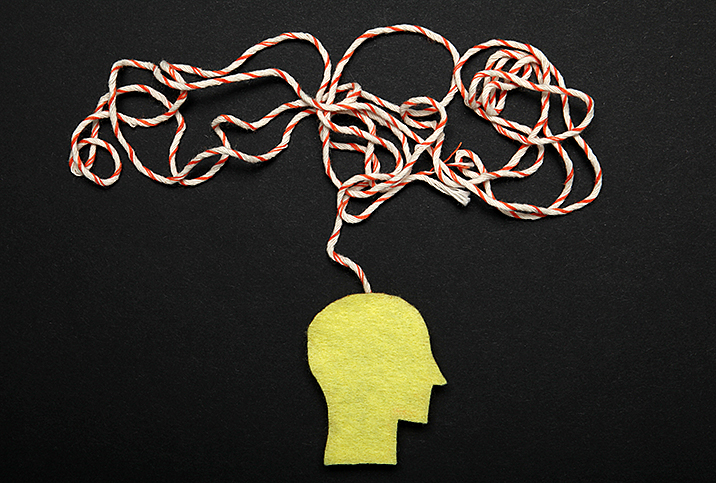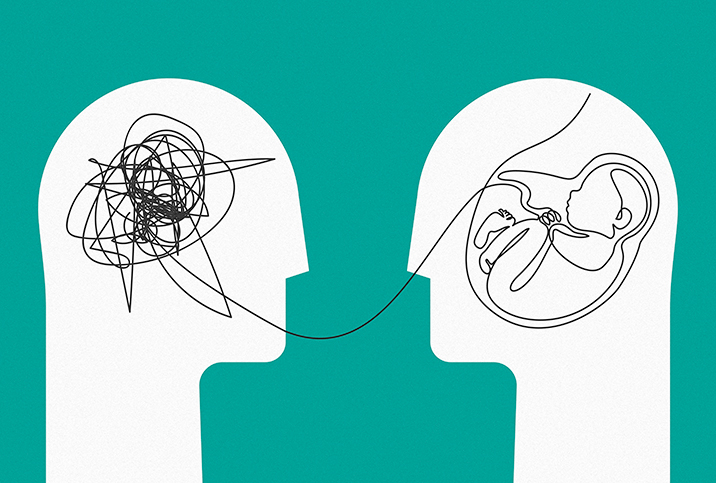What to Expect (From Your ADHD) When Expecting

Pregnancy can be a difficult time for expectant mothers, and it can be hard knowing what to expect when you have attention-deficit/hyperactivity disorder (ADHD) on top of growing a human.
ADHD is a common neurobehavioral condition that affects between 2.8 percent and 4.4 percent of adults, ranging from mild or moderate to debilitating.
The sudden surge in hormones during pregnancy can cause a change in ADHD symptoms, making them more manageable for some people—and worse for others.
The role of hormones
"The hormones that change drastically during and after pregnancy can have a huge effect on ADHD symptoms," explained Carrie Jackson, Ph.D., a San Diego-based parent coach, child psychologist and therapist with DiveThru.
As estrogen levels rise during pregnancy, some women with ADHD see an improvement in inattention and impulsivity symptoms, Jackson said. They may notice changes in mood and energy levels, but this can also be dependent on diet and exercise.
Pregnancy can still be anxiety-provoking and stressful for any expectant mother. They may worry about what to expect during labor and after birth, and these concerns are natural.
"It is important to remember that pregnant women who are often perceived as highly emotional are actually reacting to the major shifts in hormones in their bodies," said Erica Laub, M.S.W., L.I.C.S.W., a licensed psychotherapist in Victoria, Minnesota.
"Being pregnant and preparing for a new life to enter the world is stressful enough," Laub continued. "For neurodivergent women with ADHD, the pressure can feel even more intense during pregnancy."
If you struggle at any point during pregnancy, you should raise your concerns and questions with both your doctor and midwife. Reaching out to close friends and family members during this time can also help alleviate some of your stress and worry.
Quitting medication
Medication can be a beneficial step to managing ADHD symptoms, especially for women with debilitating symptoms. Someone who is having difficulty concentrating, managing tasks and remembering important details could benefit from taking medication to provide clarity and increased focus.
However, if a woman with ADHD becomes pregnant, they may consider whether it's safe to keep taking their medication as usual.
Stimulant ADHD medications including Adderall and methylphenidates, such as Concerta and Ritalin, are all considered Category C medications, which in animal studies have been shown to negatively affect the developing fetus, explained Roseann Capanna-Hodge, L.P.C., B.C.N., an integrative and pediatric mental health expert in Ridgefield, Connecticut.
A 2018 study published in the Journal of Attention Disorders suggested that women who take ADHD medication throughout pregnancy may have a slightly higher risk of the baby having birth defects, but the risk still remains very low.
When discussing the advantages and disadvantages with your doctor, they may recommend you stop taking your medication and turn to natural and safer alternatives. For example, ADHD symptoms can be managed through therapy.
"Cognitive behavioral therapy can be particularly helpful to helping you identify coping skills to use when experiencing mood swings as well as organizational and time management strategies," Jackson said.
It's important to discuss the options and weigh any risks with your doctor first, as stopping medication abruptly can cause high blood pressure and other unwanted side effects. In some cases, a healthcare professional may offer an antidepressant that is safer to take throughout pregnancy.
After pregnancy
While you may see an improvement in your ADHD symptoms during pregnancy, it's expected that symptoms will resume or worsen after the birth.
"After pregnancy, the estrogen levels drop significantly, which can lead to worsened symptoms after childbirth, potentially placing women with ADHD at a greater risk for concerns such as anxiety or depression," Jackson explained.
During this time, it's common to have feelings of confusion, sadness, worry, relief and joy. This mix of emotions coupled with the sudden drop in estrogen can increase the chance of postpartum depression.
Capanna-Hodge suggested taking 10 minutes a day to calm the brain with activities such as breathwork, meditation, biofeedback and neurofeedback, which can increase alertness.
"A calm brain can pay attention, think clearly and take action, so it is critical for someone with ADHD to focus on regulating the nervous system," she explained.
Mood swings are common after pregnancy. You may want to talk to your doctor about resuming medication to stabilize your moods, which is important when caring for yourself and your baby. Asking for support from a partner, friends and family members can help lift some stress and worry, allowing you to rest and take some time out for yourself when needed.


















